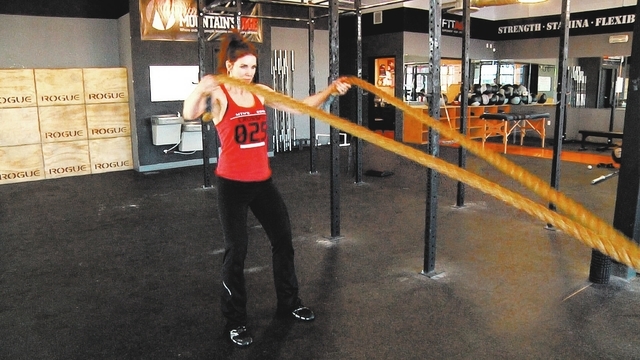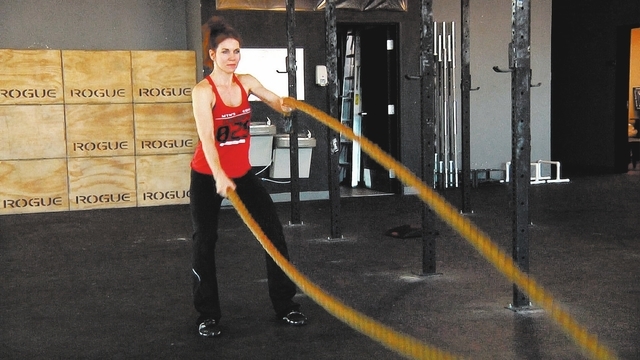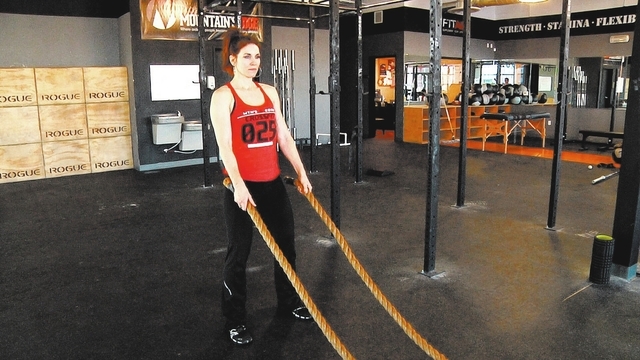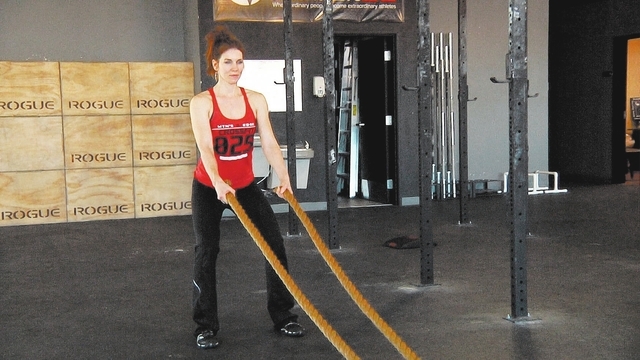All levels of athletes can benefit from battle ropes




Two-minute sets. That sounded easy. By the fourth set I was worn out; lying on the gym floor exhausted! My love for the battle ropes was born.
Giving gym equipment an intimidating name like battle ropes can put some people off from using them. Truth is, you can condition all levels of athletes with battle ropes.
Many gyms provide battle ropes for their members. You may find them rolled up in the corner or left out after the last user was too tired to put them away.
A battle rope is a single rope about 2 inches thick. It is most commonly folded in half and anchored at the center around a sturdy pole or some heavy dumbbells. Some gyms may have a special wall mount for the anchor point. You hold each end of the rope and perform various drills. It is common to see gym members attempt to use them and walk away when they feel they’re not doing it right.
I like using battle ropes for their multiple effects. You’ll first notice that they make you tired very fast. Pace yourself. Perform drills such as those featured today in sets of 10 or 20 at first. When that gets easy, try holding yourself to a time constraint. See if you can maintain drills for 30 seconds, 60 seconds and even as long as 2 minutes. Ropes work well for interval workouts and make for easy transitions in circuits.
Another benefit is that they help train good posture during movement. As a trainer, I watch for some key posture points to ensure proper movement patterns. The feet are spaced about shoulder width and toes slightly pointed out. The athlete assumes a squat stance with the weight on the heels and not on the toes. The hips are hinged and the knees are slightly bent so the shin is vertical. And the back is, you guessed it, straight. Remember to keep the core tight.
The key to ropes is to make a pretty pattern in the rope. Pretty patterns are cues for efficient and safe movement. This is because the shoulders are the prime movers for rope drills. As people start to fatigue the biceps take over. This manifests in a sloppy pattern. Instead of a nice wave up and down, the rope looks choppy and uneven.
The pattern should flow all the way to the anchor point. If the pattern dies out halfway down the rope then you need to add more power.
Correct posture and movement are the keys to making it through your rope drills. If posture is crummy from the back rounding or the biceps doing most of the work, then your body will fatigue too fast and it will ache where your form was bad.
Use a trainer or gym buddy to watch your form. Their eyes can be the difference between a good workout and one where you feel beat up and sore.
Getting into the science side of things, rope drills are multiplanar exercises. Different from a press, chest fly, row or pull, which are all along a single plane of movement, rope drills use more angles. This goes a long way to make for a stable shoulder. Strength in single planes of movement is good and will take you a long way in terms of joint health and overall fitness. But don’t neglect your shoulder stability. A 1.5- to 2-inch rope will be plenty heavy to build stability in the shoulder.
Featured today are two of my favorite drills to get you started. Most people have some unilateral imbalances from one arm to the other. With practice they can even out. Notice how your right and left arms compare when performing the snake and the outside circle drills.
See if one is easier to control. One arm may produce the “pretty pattern” and the other arm looks choppy and uneven. Don’t be discouraged, just keep practicing.
If you suspect a strength or mobility issue, then ask a trainer at your gym for help. They have a few tools to assist. If you have a shoulder injury or are recovering from one, ask a doctor before attempting the battle ropes.
Chris Huth is a Las Vegas trainer. He can be reached at 702trainer@gmail.com. Consult your physician before beginning any exercise program.












